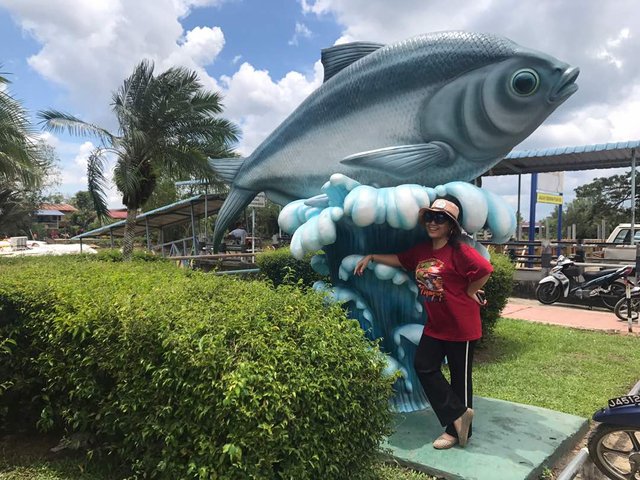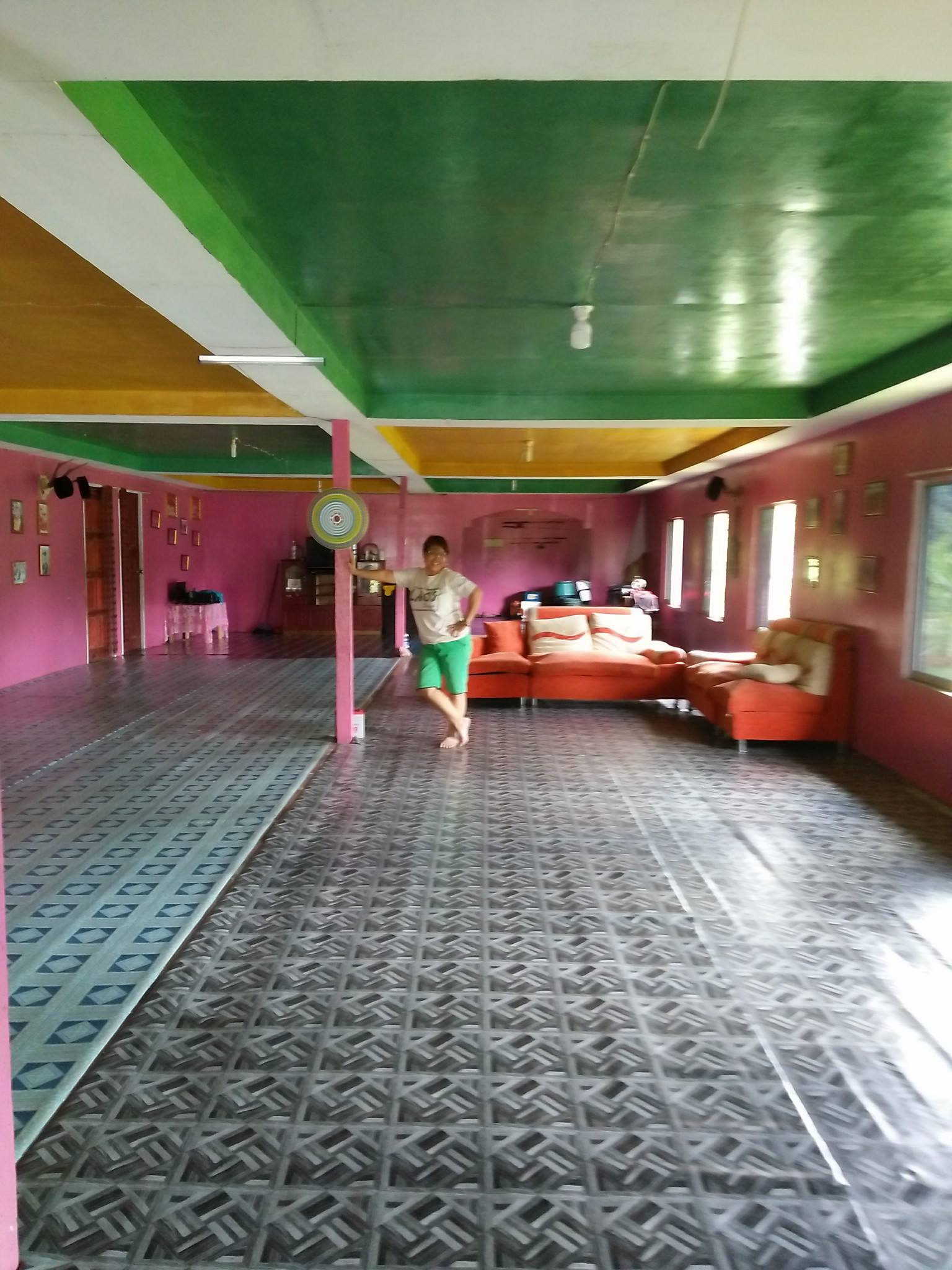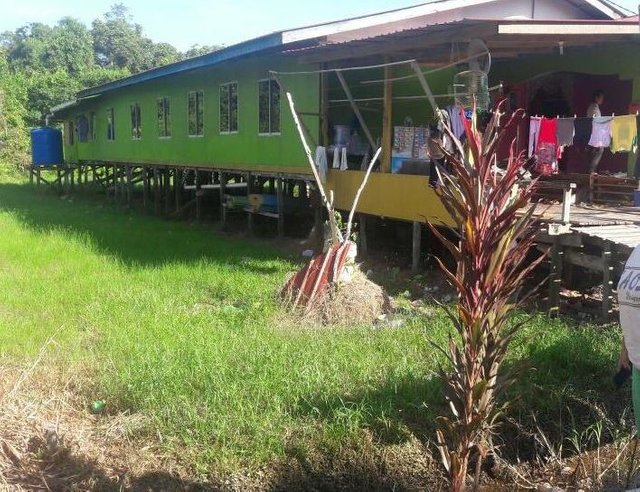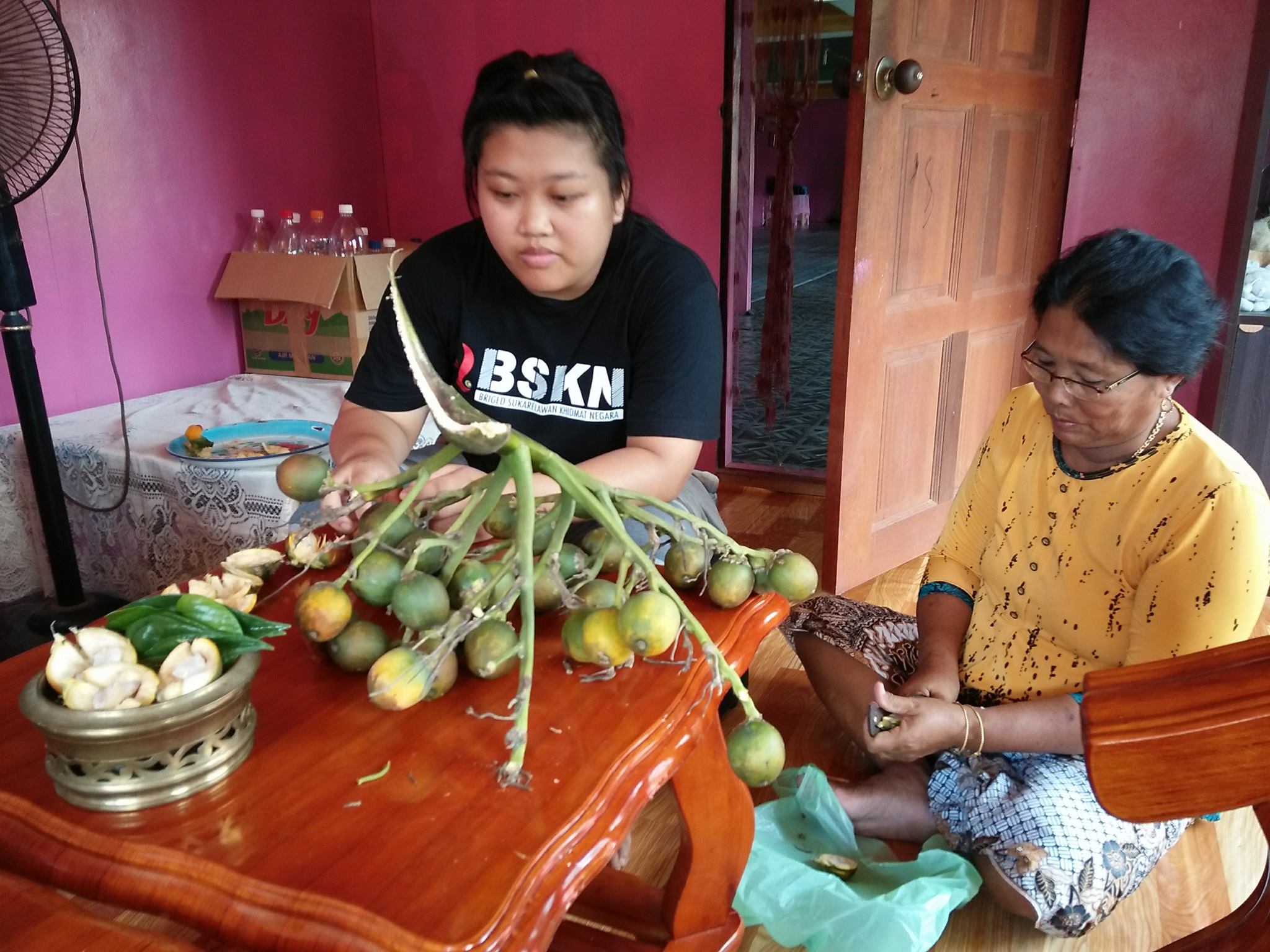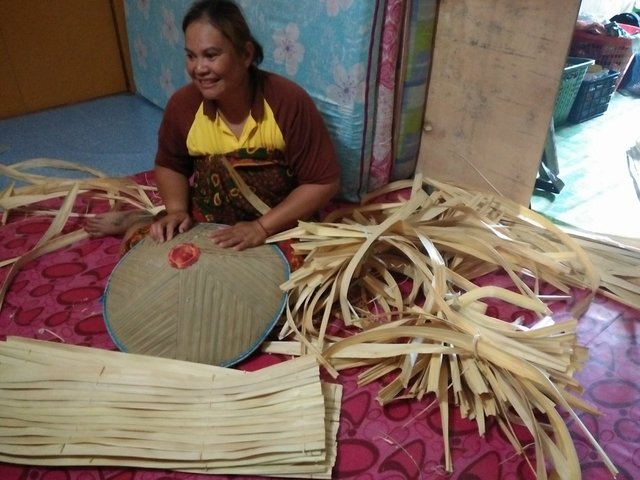The Last Longhouse in Daro, Mukah, Sarawak
This article appeared in Daily Express dated October 8th 2017.
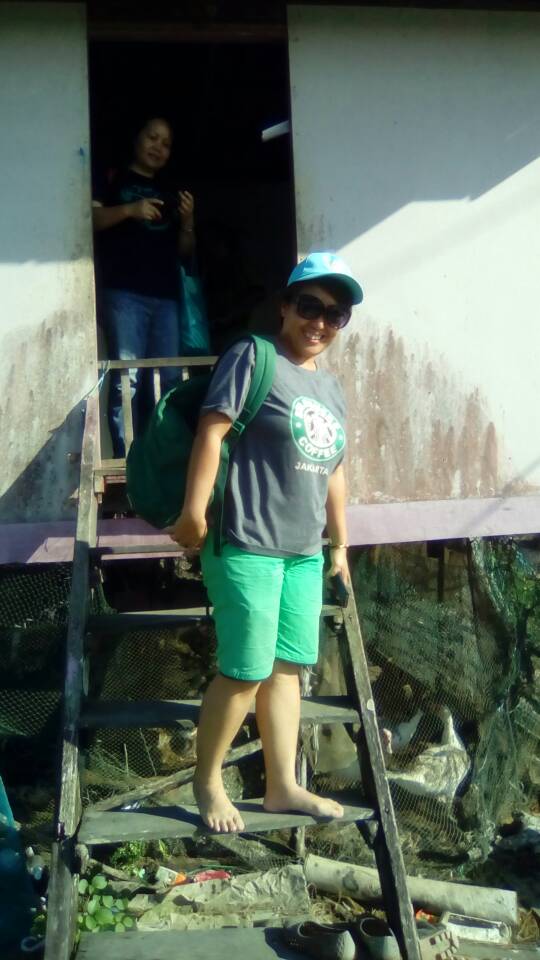 Sarawak has long been known for its many uniqueness making it different from the other states in Malaysia. When one hears of ikan terubuk, kek Lapis, buah Dabai, longhouses, it is without doubt symbolic of the land of the hornbills.
Sarawak has long been known for its many uniqueness making it different from the other states in Malaysia. When one hears of ikan terubuk, kek Lapis, buah Dabai, longhouses, it is without doubt symbolic of the land of the hornbills.
On a leisurely excursion to Daro district in Mukah, the writer was brought to the two remaining longhouses belonging to the Melanau and Iban communities respectively. According to Dr. Raduan Serap, a Melanau, these two longhouses would be unique as no other longhouses in the area had even been built since.
Along the way to Kg. Pantray which is about fifteen minute drive from Daro town, Raduan brought the writer to meet up with his relatives who live in the longhouse.
Nipah palm trees can be spotted along the way, with a river leading to the village, called Sungai Daro. Another smaller one is called Sungai Pantray. It was a calm and breath-taking nature if one pauses to feel and smell the nature in the wild.
“That was how the village got its name, from the river,” said Raduan.
He said long ago, his uncle Asah Mohidin used to work at the lodging camp when logging was the main activity then in that area.
Upon reaching the longhouse, he immediately told that there are thirty six family members living in the thirty-two metre long longhouse. Most of the time, they plant their own vegetation for own consumption. Other villagers nearby operate a small tuckshops from their respective house.
“Life is quiet here but peaceful. The Melanaus are very peaceful and friendly people,” said Raduan. He said the new generation had started seeing education is important in terms of uplifting their way of life and improving social economy.
“With education, there is always connectivity between the village and outside world. It is all about networking with people inside and outside your horizon. I always instil in the mind of the younger generation to see education as part of important thing in life,” said hopeful Raduan, who is an active member with the Pulau Bruit Graduates Association, which he was one of the founders.
Nurul, Raduan’s niece is one of the younger generations of the Melanau ethnic who has successfully completed her basic secondary education and is now undergoing business administrative management course with UNIMAS (Universiti Malaysia Sarawak).
Nurul’s father, Jazmi Asah does odd job in the village trying to make ends meet.
When the weather is good, fresh water prawn is available in abundance, said Jazmi. The river not far from their house is the main source of prawn catching spot.
His wife, Asinah Bujang operates a small tuckshop at the veranda of their house. When asked who would come to buy her things, she said the primary and kindergarten school children pass by the house and usually would take some rest at the huge veranda. She thought by the selling some sweet stuff for the children on their way home from school would make them happy.
Raduan’s aunty, Mazinah Elli (65) shared life in the village is quiet and lesser activities, but they are used to the situation.
“I seldom go to Daro town. I don’t need to. I have basic needs in the village, I don’t need any other things,” said Mazinah who feels comfortable by living with simplicity.
When asked if they sell any wild plants or vegetation at the nearby ‘Tamu’ (flea market), Nurul’s mother Asinah said when there is extra they will sell, but most of the times it is for their own consumption.
Asinah proudly shared the only pinang tree (beetle nut) that has been growing healthily in her village is theirs, saying it is different from other type of pinang trees. She said neighbours and friends tried to plant seedlings from her tree but to no avail.
What is so special about the tree, asked the visitor. Asinah revealed that long ago many villagers attempted to plant the trees at their own compound but none were successful, except the one that she planted nearby their longhouse.
“The nut is crunchy, juicy, very pleasant to chew and it doesn’t make you drowsy, unlike some pinang I tried before, I could get headache after consuming it. But my pinang, even children can take it,” she shared.
When asked about trying to re-plant the tree for seedlings, knowing it has good quality of pinang (as it doesn’t make one feel drowsy), Asinah replied they have no intention for re-planting as the present tree could still produce more pinang, she said.
A neighbour, Norman who happened to pass by their house happily came by to help climbed the pinang tree to get some samples of beetle nut to prove what they said was true!
Like an expert, he needed no apparatus to climb as he did it in a blink of everyone’s eyes. The writer felt the closeness and friendship among neighbourhood are still intact in the village.
Raduan, who has been involved and exposed to many associations and experience as a seafarer visiting other countries opined that, the mind-set of his community, the Melanaus in general still have long way to go for betterment.
“I think I understand those who are in the older generation would choose to stay and live in the village and content with what they have. Unlike those who are already exposed and have furthered education, they think of improving their way of living so that it helps improve their economy, not only for them but the generations to come.”
Raduan shared that living in the village is always a calming and pleasant experience for him, as he currently lives in Kuching city due to his job commitment. He would come back to his hometown in Pulau Bruit, in Daro when time permits. However, he said living in the longhouse can be steaming hot in the afternoon but freezing cold at night.
Mazinah is hopeful that Nurul, her grand-daughter would be the leading example for the family in regards to developing human capital (for their family) and improving livelihood.
She said being educated is a good way to elevate poverty but insisted that life in the village is stress-free and peaceful.
Coming out from the village to another place, one needs to get ferry to be in Pulau Bruit where the Iban longhouse is located. A thirty-minute ride by ferry would take the vehicle to a place called Rumah Kelai where the only Iban longhouse is located in the island. Going from 50 kilometres from Daro town, the journey was pleasant however, bumpy at some points. The elder of the community, Salat Anak Geruna said there are 31 families who are all related living in the longhouse, where it had been in existence since fifty years ago.
The length of the house is measured at about 279 metre long, most of the men are doing farming or fishing job while women look after their children. Those who have lands would plant fruits such as pineapples. It was no wonder that just before reaching Rumah Kelai, pineapple farms could be seen all along the way.
“Our pineapple is sweet all year round,” said Neggie Anak Usin, who is one of the occupants in that longhouse. She said if one gets it direct from the farm, it would be a lot cheaper than from the market as the price would have been doubled by the middle person.
She said whenever they have visitors coming to visit their longhouse, people never fail to notice the unique environment they have. The atmosphere is somewhat amicable and harmonious. Everyone seems to be helping each other and friendly with everyone.
Neggie immediately recognised the writer whom she met at her roadside stall a day earlier when they made quick stop for pineapple-bite.
One of the younger Iban girl spotted inside the house was Irene Anak Anjat who is in Form one in SMK Semop, the only secondary school in the island.
Irene enthusiastically said she would complete her studies until university level and achieves her dream to be somebody important to the society in the future.
Her mother, Kambai Anak Empero is a housewife and would always occupies her free time doing a lot of things such as making ‘Tanggui’, a special hat of the Iban made from sago palm leaves.
When asked whether she makes a lot and sell them at the nearby market, she smiled and replied, those are for own use.
“But how many hats can you use everyday? If you make a lot, you can sell them and you will get some income,” suggested the visitor.
They are a bunch of happy-go-lucky people, who don’t seem to be worried about not getting enough, unlike some urbanites who have to do three jobs at one time just to pay for their expenses, said Raduan to the curious writer.
Raduan shared that life in the village has always been the dream of many people especially those who have been too long in the city.
The Iban community are very hardworking people and dedicate their time looking after their farms. They are brave people too, he said, citing some examples where they would defend their lands relentlessly if any ‘intruders’ come to disturb their life!
When the ambience became lively especially when the writer kept asking many questions to the occupants of the house, and being replied loyally and happily by them, Kambai immediately went in to her kitchen to get some bottles of her locally made ‘tuak’ drink, a kind of traditional brewed drink to serve to the visitors. She said, the Ibans are very delighted to receive visitors, especially those who were first times to their place.
“It is an honour to receive new people to our place. To show our appreciation, we serve ‘Tuak’ our famous local wine,” she smiled. Having no choice, the visitors had a few sips before they said good bye to the friendly Iban community. The writer promised to come back and sample a night or two in her next visit. Kambai and her daughter Irene were happy to note that outsiders are willing to stay in their simple aboard.
Before departing, the writer suggested to Kambai that she should charge people to stay in their place because longhouse is a unique place and not many of such houses are available these days due to modernity.
Kambai and her daughter Irene smiled and eagerly waiting for the ‘next time’ when the writer promised she would come back to stay in their place.
The community had made the visit fruitful with beautiful memory made by them with their friendliness, openness and simplicity.
